
12 minute read
Composition Chem

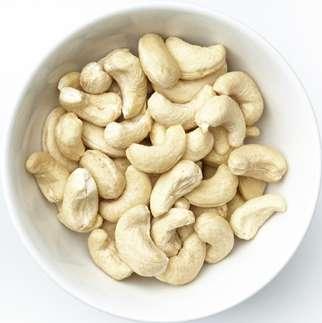
Advertisement
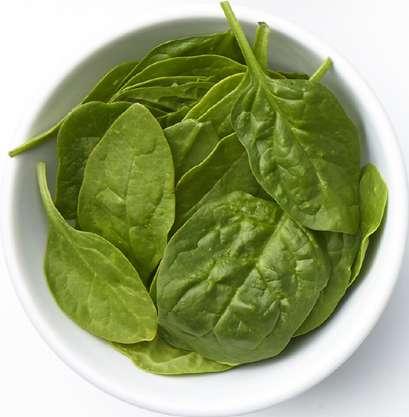

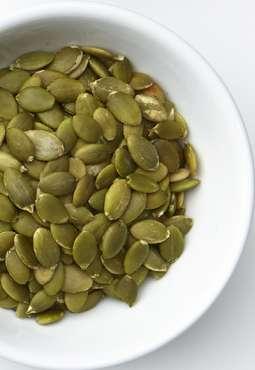
Could eating in a constant calorie deficit actually be stalling your fat loss? Find out how eating nothing but rabbit food could be the reason you’re gaining a winter coat way too early in the year.



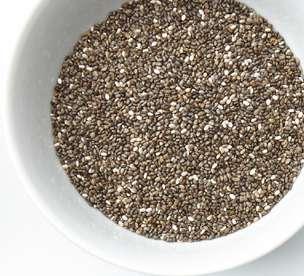
WRITTEN BY COURTNEY ROBINSON
If you’re training consistently and eating well but still not seeing the body composition of your dreams, it can be tempting to simply go harder. More volume, more HIIT, more cardio. Less calories, less carbs, less rest. Because surely increased energy expenditure and a sustained calorie deficit must result in fat loss, right?

Not so fast. Improved body composition is not always as simple as calories in versus calories out. Research shows that when your body perceives too great a gap between energy expenditure and intake, it triggers fat storage and hormonal disturbance. You might notice it as low energy, loss or disruption of your menstrual cycle, sleep disturbance or fluid retention. Your usual workout might wipe you out, and the harder you try to drop fat the more your body seems to cling to it. Termed Relative Energy Deficiency in Sport (RED-S) the British Journal of Sports Medicine linked low energy availability (not eating enough to fuel your daily energy requirements) to altered thyroid function, disrupted appetite-regulating hormones, decreased insulin and increased cortisol. As your body battles for survival in a perceived ‘famine’, these hormonal changes occur to conserve energy.
“RED-S puts the body into fat storage mode because it perceives we don’t have enough fuel for recovery,” says Dr Cris Beer, Integrative General Practitioner and creator of the 12 Week Hormone and Weight Reset Program (@_drcris).
“Your body will fight to keep you alive. I’ve never met anyone who can sustain weight loss long term by starving themselves.” While cutting calories might help you lose weight initially, the scales will inevitably stall, or even increase as your body fights for homeostasis (balance). The often overlooked key to gaining – and maintaining – optimal body composition is hormone health. “Your hormones influence how we regulate our body weight,” says Dr Nick Fuller, leading obesity researcher from the University of Sydney and Author of Interval Weight Loss for Life and new release Interval Weight Loss for Women (intervalweightloss.com.au). “Following weight loss, cortisol levels rise, promoting weight regain. Simply put, a reduction in food intake (as with dieting) results in an increase in plasma cortisol, and excess cortisol leads to weight gain.
“Another example is our thyroid hormones, which play a key role in our metabolism. Dieting suppresses the release of thyroid hormones, resulting in subsequent weight regain.” When we think hormones, oestrogen, progesterone and testosterone often get top billing (you can get more info on these p.72– 75). This trio is key to reproductive health and influence mood, bone development and even cardiovascular health. But optimal performance and body composition require an intricate balance of complex hormonal relationships.
THE BIG PLAYERS
Get to know how your hormones influence your body composition, and you can optimise your nutrition to keep these guys in check.
Insulin the fat storage hormone. Insulin is responsible for blood sugar regulation. It converts glucose in your blood to glycogen for storage in your liver and muscles, with excess stored in your fat cells. Reducing blood sugar by limiting refined carbs and increasing fibre intake lowers the body’s need for insulin, while recent studies show resistance exercise increases insulin sensitivity, so your body requires less insulin to regulate blood sugar levels. Greater muscle mass also means more storage capacity for glycogen, reducing the excess to be stored as fat. Win win.
Cortisol your chronic stress management hormone. Cortisol plays good cop/bad cop. On the plus side, it’s an anti-inflammatory hormone that eases pain and buffers insulin. But excess cortisol – brought about through overtraining, undereating, excess caffeine and high stress levels – can undo all your hard work in the gym. Elevated cortisol slows your metabolic rate and triggers fat storage.

Then comes the double whammy – a catabolic hormone, cortisol breaks down muscle tissue to convert the amino acids into glucose, with the excess stored as glycogen. So you lose muscle mass and gain fat. Eeek.
Leptin the appetite regulation and satiety hormone.
Leptin tells your brain to stop eating. Research has shown that chronically elevated insulin levels can impair the brain’s ability to receive leptin’s signals, so you don’t get that mental stop sign to put your fork down.
Ghrelin the hunger hormone.
Ghrelin is released from the stomach when we haven’t eaten for a period, to tell us to start eating,” says Fuller. Sleep can also be a trigger. “We’re still learning how sleep influences appetite, but we think that lack of sleep adversely impacts ghrelin and leptin,” says Simone Austin, Advanced Sports Dietitian and President of Sports Dietitians Australia (@simone_austin). Getting eight hours on the reg and eating protein at every meal can balance ghrelin levels to help keep your appetite in check.
Thyroid hormones the hunger hormone.
The metabolism booster, your thyroid hormones (specifically T3) drive metabolic rate and fat burning. Your thyroid needs iodine to create the hormones necessary for optimal function. Think seaweed, iodised salt and wholegrain bread. Elevated cortisol also impacts thyroid function, decreasing levels of T3, which slows your metabolism.
Adrenalin your fight or flight hormone.
Adrenalin is your acute stress hormone to get you out of danger fast. How? By triggering spikes in blood glucose for fast energy. But what if you’re not running for your life, you’re just running late for work? You don’t need that energy to burn, and again, fat storage is triggered. Elevated adrenalin over time can also reduce progesterone production, resulting in oestrogen dominance, which can lead to weight gain, mood swings, bloating, painful periods and low energy. Hardly ideal when you’re chasing personal bests in the gym.
Testing, testing How do you know if your body’s chemical messaging system is out of whack? Listening to your body is the first step. Interrupted sleep, loss of athletic performance, energy slumps and haywire menstrual cycles are all signs that your hormonal or nutritional needs are not being met. Losing muscle mass, feeling breathless or fatigued and getting sick more frequently could be signs of a nutrient deficiency, says Austin.
“Low iron can result from not eating enough and can be checked with a blood test. Brittle bones may present as stress fractures, particularly in contact sports. A DXA scan can test for bone density,” she adds. Austin notes that poor energy and bone density can be symptomatic of the female athlete triad, a medical condition that can affect all athletes, regardless of physical build or sport, and which the American College of Obstetricians and Gynecologists defines as involving three components: low energy, menstrual dysfunction, and low bone density. All our experts note that the solution is often to eat more quality, nutritionally dense whole foods to fuel your workouts and recovery. “Don’t be scared to eat,” says Austin, Author of Eat Like an Athlete. “You need to take in enough to support your training – listen to your body and your appetite.”
Calorie counting alone doesn’t account for your varying energy expenditure from day to day, says Austin. Climate, training environment, exercise intensity, illness and even inflammation can impact your energy burn. If you have to count something, count protein, Austin advises. “Aim to get around 30g of protein each meal – fill your plate with a third protein, a third carbohydrate and a third vegetables.”
And if your nutrition is on point, but you’re still not achieving your body comp goals?
“If things aren’t making sense, go back to your gut health,” says Beer. “IBS symptoms, bloating, and alternating constipation and diarrhoea can indicate an imbalance in your microbiome, or a food intolerance or allergy.”

She suggests hormone testing to identify imbalances, noting that progesterone and oestrogen imbalances can result in weight gain and fluid retention: “I do see clients with abdominal weight gain due to oestrogen deficient states and high cortisol.” Saliva testing is available to evaluate cortisol and sex hormone levels, while a urine iodine test may be scheduled if deficiency is suspected. A functional thyroid test (including reverse T3) may also be recommended.
“Instead of worrying about your hormones, work with your body, not against it. Conventional approaches to weight loss and diets including all the latest fads – for example, intermittent fasting, 5:2 diet and keto – often result in weight loss followed by weight regain,” says Dr Fuller.
To supp or not to supp Adequate nutrients are required for every biochemical reaction in your body, from energy production to your menstrual cycle, to muscle and bone development. So if you’re falling short, you might also be short-changing your hormone health. “Supplementation is required for those following a vegan diet,” says Fuller. “Vitamin B12, iron and iodine are particularly relevant.” If babies are on your radar, he suggests folate, iron and iodine while an iron supplement may help for menstruating women: “Females have a much higher iron requirement than males – more than double – due to the monthly loss of blood. An iron supplement is most likely needed, particularly with heavy training.”

Beer notes that vitamins A, D and E are commonly deficient in our diets due to soil quality, manufacturing processes and the fact that we just don’t eat enough when dieting. “The body is designed to extract nutrients from food,” she says, noting that whole foods are still the best way to improve your nutritional status. Where a supplement is recommended by your health care professional, Beer says, “You do get what you pay for. In Australia, good quality products are TGA [Therapeutic Goods Administration] evaluated, so ideally look out for AUST L(A) or AUST(R) on the label, which shows it is TGA assessed listed or registered respectively for meeting the ingredient claims.”
She warns to seek advice before supplementation: “Some products contain sneaky ingredients such as stimulants or caffeine, which may interact with other medications or have side effects, such as heart palpitations.”
5FANTASTIC FIVE All our experts agree that a diet rich in vitamins and minerals is the best way to support hormone health. And ‘eat the rainbow’ is more than just a hashtag. “The current recommendation is to eat 30 different foods across the week,” says Austin. Getting variety into your diet is the best way to cover your bases for micronutrient, enzyme and calorie requirements to support the biochemical processes required for optimal hormone activity. Not sure where to start? We asked the experts for their top five go-to foods for healthy hormones.


Cruciferous vegetables It’s no surprise that fresh fruit and veg come out on top for healthful eating. But cruciferous veggies in particular – the Brassica variety such as broccoli, cauliflower, Brussels sprouts and kale – specifically support the liver, vital for the natural detoxification processes your body needs to metabolise hormones (especially oestrogen) and toxins. When you’re loading up on caffeine, alcohol or processed food, your liver takes a beating. Give it a helping hand with handfuls of leafy greens daily – a juice with spinach, broccoli, mint, a little green apple or pineapple and a dash of apple cider vinegar will start your day right. The ACV may also support bile production in your gall bladder, essential for digestion and absorption of fat. 1
2 3 Fish “Hormones are made of amino acids so a diet with regular protein intake is important,” says Austin. She notes that we need to spread our intake out across the day: “Many people eat a protein-rich dinner but forget to include lean protein during the day. Fish makes a great lunch or even breakfast – sardines, tuna or salmon or a white fish taco.” Omega-3s (such as in oily fish) also support fat metabolism, says Beer. Rice paper rolls are a cinch whether you’re eating al desko, cramming a bite on the run or as a pre-workout protein fix. Nuts “A rich source of healthy fats and fibre, which feeds gut bacteria,” says Austin. “Nuts are a great calorie-dense snack after training when you need energy, and the healthy fats are important for overall metabolism.” Fuller adds: “Nuts are a rich source of vitamins, minerals and good fats. Olive oil is also rich in monounsaturated fats to reduce inflammation.”

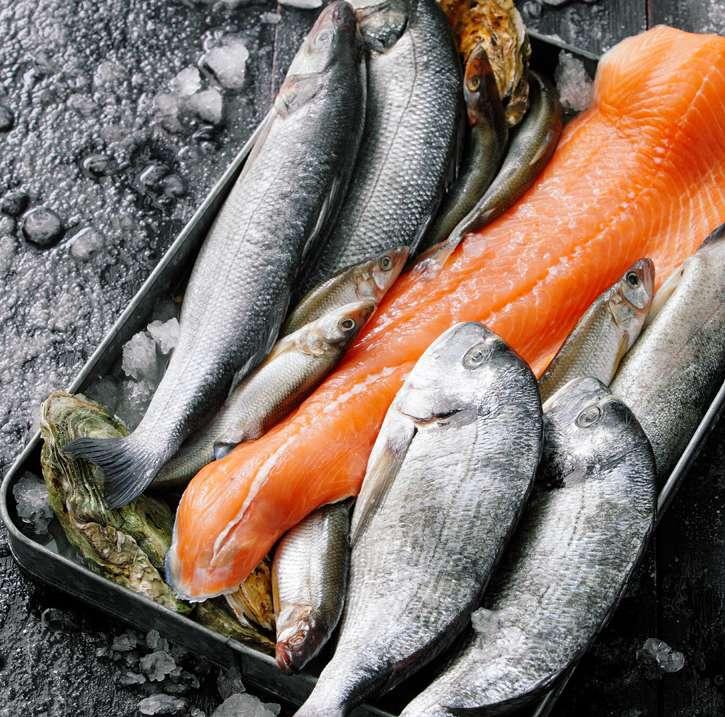
4Wholegrains Our experts are unanimous in their support of wholegrains. The fibre in wholegrains feeds our gut bacteria, and you need a healthy gut for healthy hormones, and healthy hormones to hit your body comp goals. Did we mention that gut health impacts appetite, immunity, mental health and mood? Might be time to up those fibrerich complex carbs.
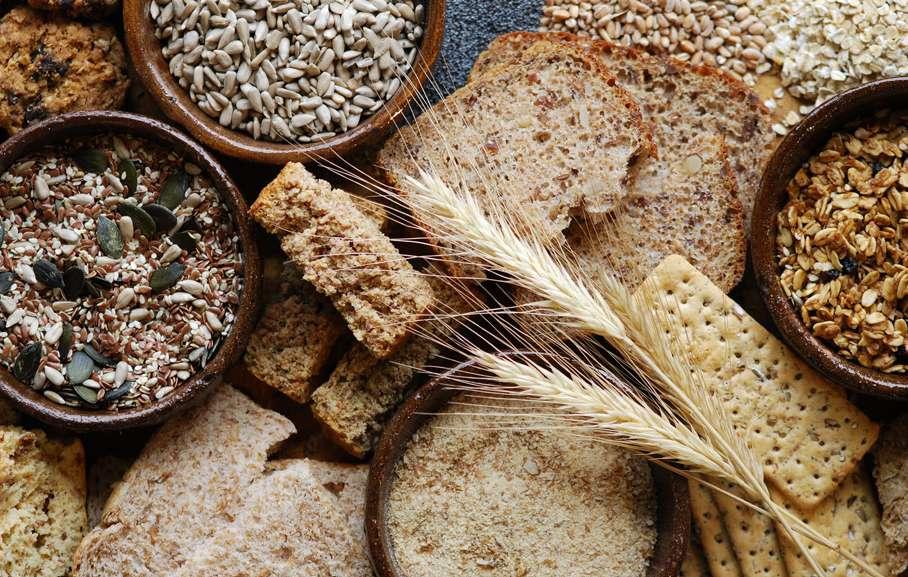
5Dairy “When you’re training really hard, your menstrual cycle might be affected,” says Austin. “Optimal oestrogen levels are important for bone strength. When oestrogen is depleted, calcium can be leached out of the bones, affecting bone density.” Greek yoghurt with berries and nuts help hit your protein, fat and carb macros in one tasty bowl.
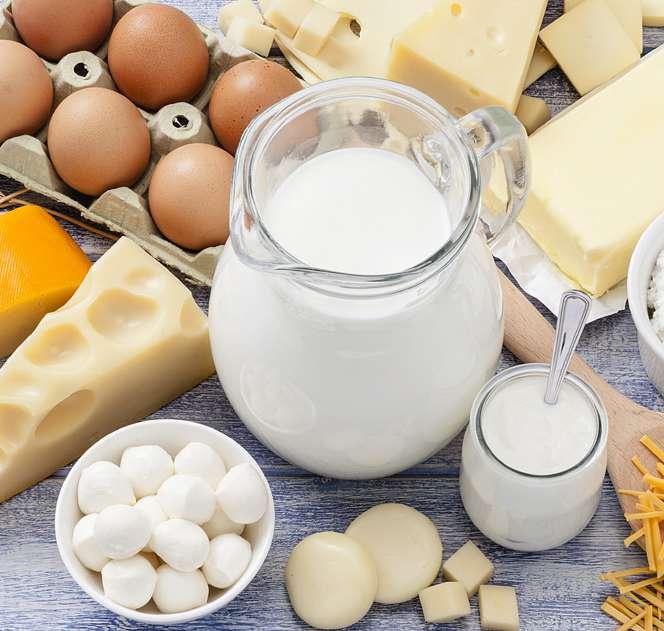
The key takeaway for healthy hormones is that it requires optimal nutrition. So fill your plate with nutritionally dense foods, eat to your appetite, prioritise rest and stress management, and listen to your body instead of fighting it. S










